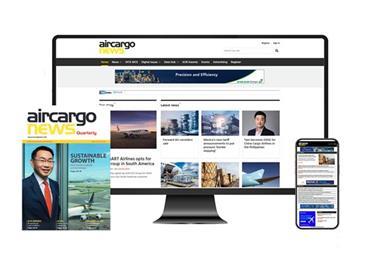Lufthansa Group-owned Lufthansa Cargo and Swiss WorldCargo have announced they will begin to include the cost of Sustainable Aviation Fuel (SAF) in their Airfreight Surcharge (ASC).
The two cargo businesses said that starting on January 1 2025, they would include a SAF blending quota of an initial 2% for departure from European Union (EU) countries.
The move comes after the EU mandated that from 2025, fuel uplift from member state airports must contain at least 2% SAF as part of the RefuelEU initiative.
The percentage will increase gradually, reaching 6% by 2030 and 70% by 2050.
The RefuelEU initiative is part of the wider European Commission ‘Fit for 55’ package to meet the emissions reduction target of 55% by 2030 compared to 1990 levels.
Lufthansa Cargo pointed out that other countries were also planning to implement similar requirements.
"The Indian government, for example, is working on a mandatory quota of 1-5% from 2027," the airline said.
"Singapore is requiring airlines to add 1% SAF to flights departing from Changi Airport starting in 2026. The target is 3-5% by 2030. By then, the EU will require 6% and the UK and Japan will require 10%."
Lufthansa Cargo added that the aviation industry cannot initiate a competitive SAF market on its own and called for support from governments.
"A targeted policy support strategy is required. Significantly more use of SAF is only possible if its supply volumes and availability increase substantially as quickly as possible and the prices fall accordingly," it said.
"Biogenic SAF is currently available in small quantities and 3-5 times more expensive than fossil fuel. A targeted policy strategy is needed to be able to meet the volumes for the blending rates and beyond."
The two carriers said that they implemented the ASC in 2015 as a combined surcharge to cover additional costs that cannot be influenced by the individual airlines.
"So far, these have mainly been rising fuel, currency and security prices. The flexible and fair system works as follows: Lufthansa Cargo monitors the development of additional costs using a standardised index calculation system," Lufthansa said.
"If the indexed costs require an upward or downward adjustment to the ASC, the cargo carrier will review and determine the appropriate adjustment.
"The ASC is added to the net price of each shipment. In some countries, regulations do not allow surcharges or only allow them to be applied in other ways. This may result in different surcharge levels from country to country."
Both cargo firms pointed out that the Lufthansa Group is aiming to achieve a neutral CO₂ balance by 2050 and that they are aiming to halve net CO2 emissions by 2030 compared to 2019.
They also both offer customers emissions reduction/offset service: Green Choice at Swiss WorldCargo and Sustainable Choice at Lufthansa Cargo.
https://www.aircargonews.net/policy/environment/formula-1-and-dhl-give-the-green-light-to-saf/
https://www.aircargonews.net/airlines/uk-advertising-regulator-raps-virgin-over-description-of-pioneering-100-saf-flight/















